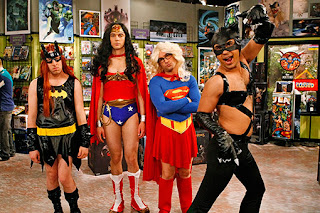My, my, how the world is changing.
It seems like only yesterday the internet was in diapers, and I was doing my homework on a DOS operating system. And while I might long for the classic games like King’s Quest, and Command & Conquer I used to play on it, my god was it primitive in comparison to the technology in 2011. It seems fairly elementary, but we don’t usually pause to think about how advanced technology’s become, and how these changes affect the traditional news media.
It seems like only yesterday the internet was in diapers, and I was doing my homework on a DOS operating system. And while I might long for the classic games like King’s Quest, and Command & Conquer I used to play on it, my god was it primitive in comparison to the technology in 2011. It seems fairly elementary, but we don’t usually pause to think about how advanced technology’s become, and how these changes affect the traditional news media.
Fast-forward to 2011 and notice that there’s a different way
of consuming news. It’s called the
internet.
It allows us to access and share information with a broad
audience in an instant. Now that mostly
everyone in Canada and the US has access to a computer or smart phone with
internet access, we’ve seen the decline of paper newspapers….. Go figure.
They just can’t report the news as quickly in a paper format
because of the time it takes to edit, and print. In other words--- when you get a newspaper in
the morning, it’s mostly reporting on yesterday’s news… and in the world of the
internet and social media, that’s OLD news.
Why should I buy a newspaper when the same article is online
before the paper, and is interactive using comments?
And social media, I can be updated on the latest news as it’s
happening, before any reporter can write an article about it.
Not really, I’d say.
The most common format for TV news is the local 6 O’clock news, which
has the same problem as newspapers: it’s mostly old news. In TV there are exceptions to this: they could
be covering something live, and it is more personal for the news to be reported
by a person you can see, rather than a faceless article. But at the end of the day, it’s still mostly
old news already, if you're online.
So, how is technology i.e.: the Internet and social media
changing news media?
Newspapers are failing---obviously. And the TV news is moving more to the
mornings. CTV launched its morning news
show a few weeks ago, to compete with City TV’s The Big Breakfast, as the only
TV news morning programs in Winnipeg. Is
this turning into a trend?
Global plans to launch a new two-hour morning news program
in the near future, to compete in the Winnipeg market.
Until recently, it was perceived there wasn’t much of a
market for morning news, and City TV’s the Big Breakfast was the only show in
town.
What’s the cause of this? We, as a society, want our information, and we
want it now.
Traditional media is learning that it needs to adapt to stay
alive; and has been. But will it be
enough?
Something very important to the future of news is the medium
it’s reported in.
I foresee a future where the internet, radio, and TV are all rolled into one—we practically have it already. More and more news organizations have apps for the iPad, iPhone, Android and for other operating systems. The problem is: how do they profit from it? As they get more popular, I’ve seen more advertising in the apps. Makes sense, right? But they’re not rolling in the kind of dollars they would for TV commercials.
I foresee a future where the internet, radio, and TV are all rolled into one—we practically have it already. More and more news organizations have apps for the iPad, iPhone, Android and for other operating systems. The problem is: how do they profit from it? As they get more popular, I’ve seen more advertising in the apps. Makes sense, right? But they’re not rolling in the kind of dollars they would for TV commercials.
The news media can have their cake and eat it too, when TV
and internet are one, and the distinction is negligible.
It’s not a farfetched idea; there are TV’s that have
internet access built into them.
Conversely, I fear this happening. If and when this happens, it will mean less
user control and freedom of the internet—which is the whole point: a free voice. If it is combined with TV somehow, mark my
words, somebody will regulate it. But I
think that’s where we’re headed. It’s
going to be a bumpy ride---hold on to your hat… if you haven’t already sold it
for food when the financial system comes crashing down… I’ll save
that topic, for next time.






